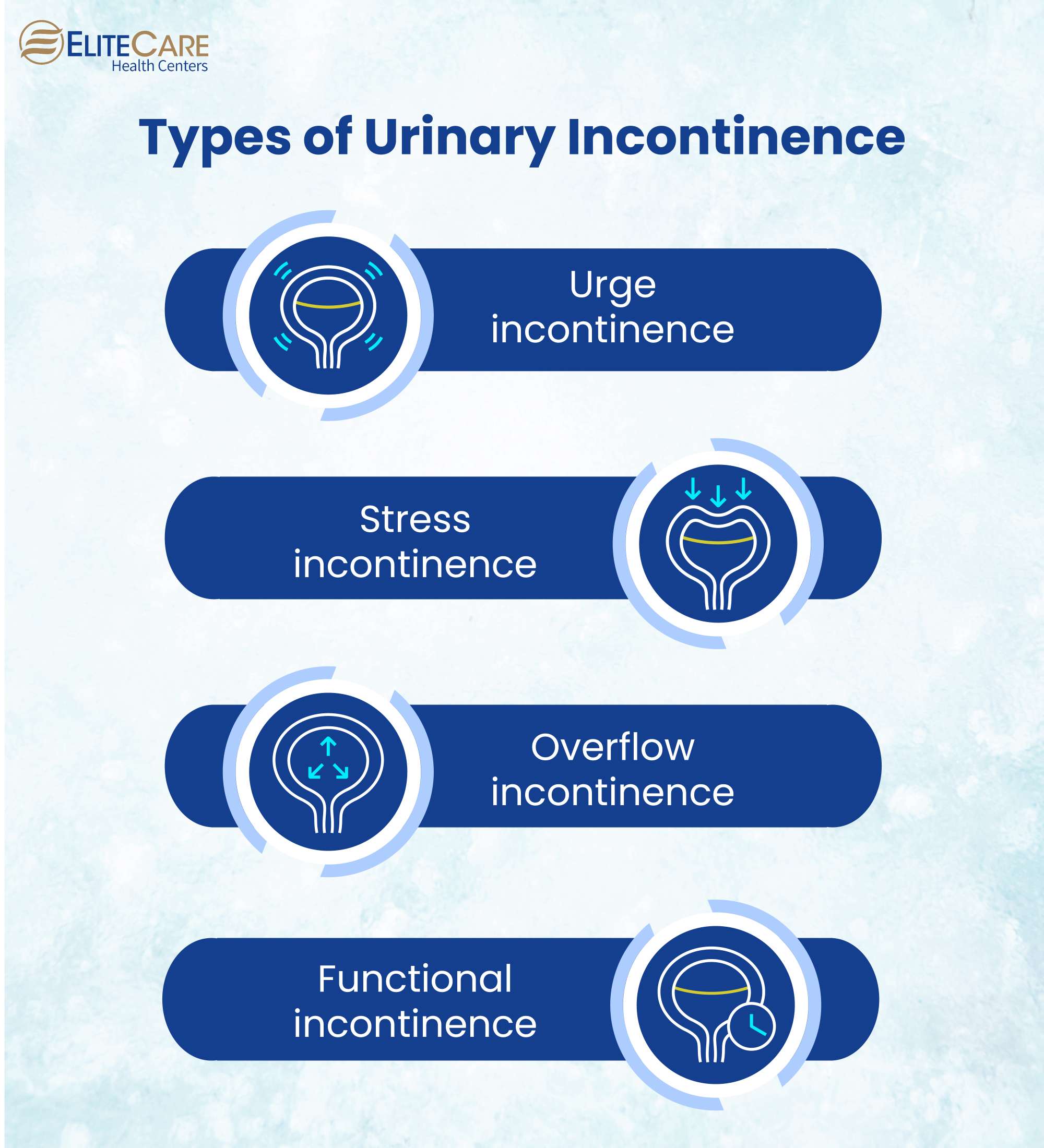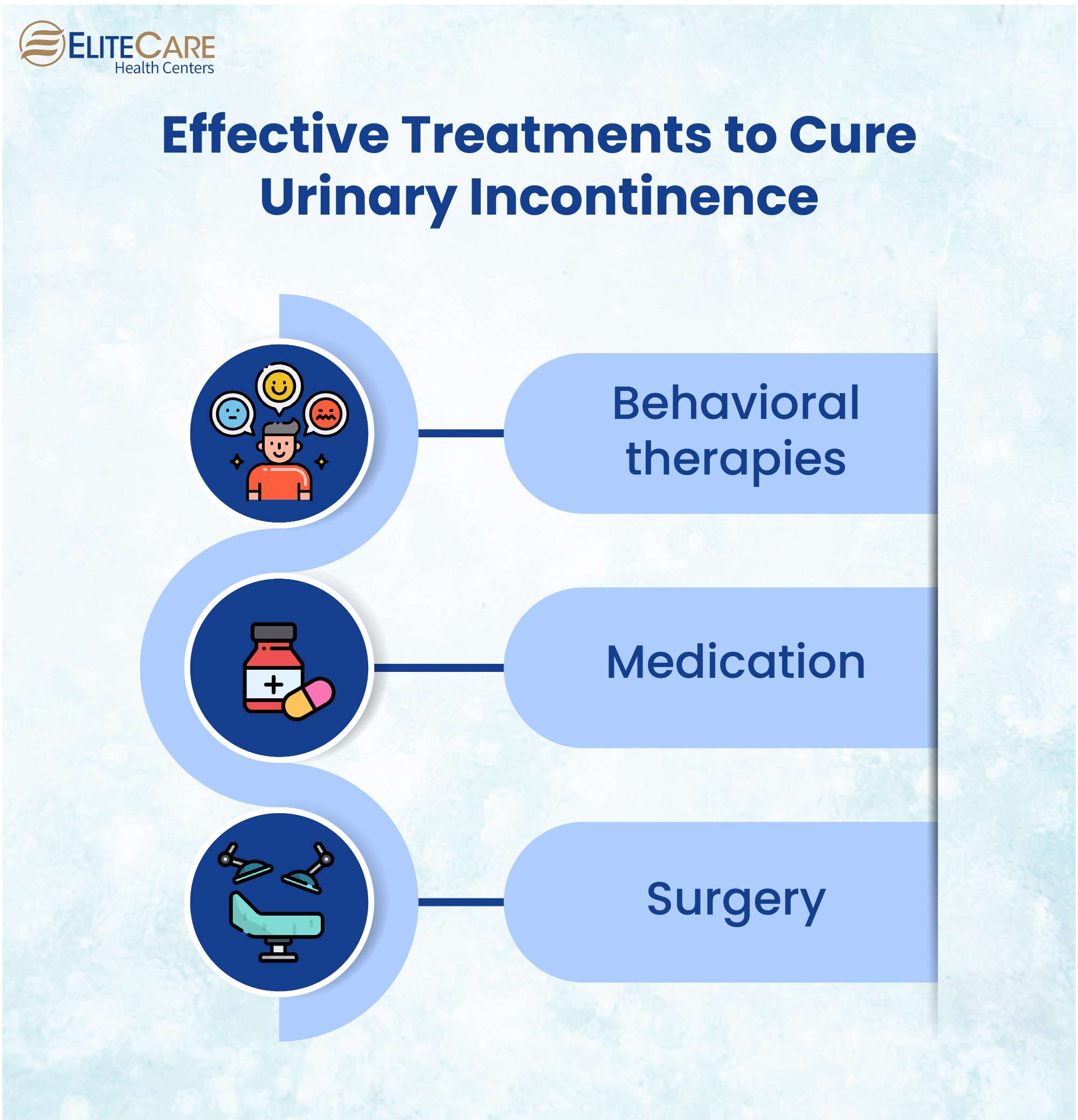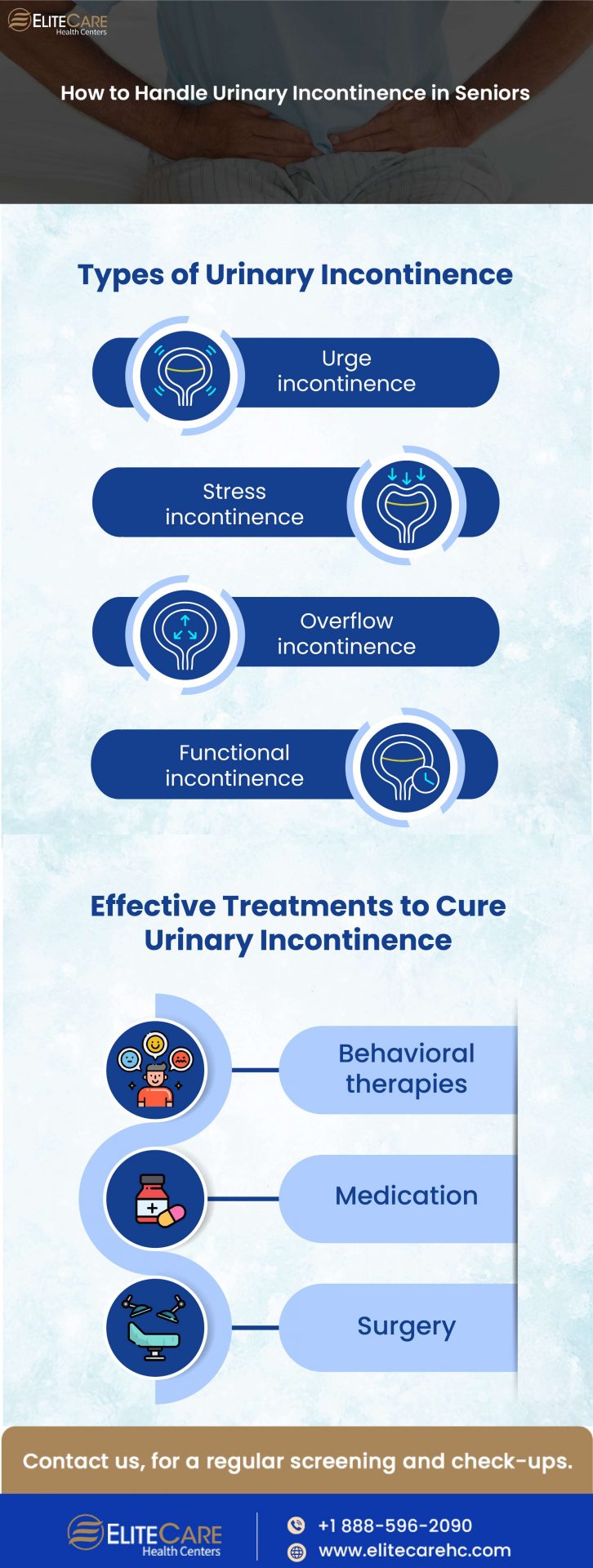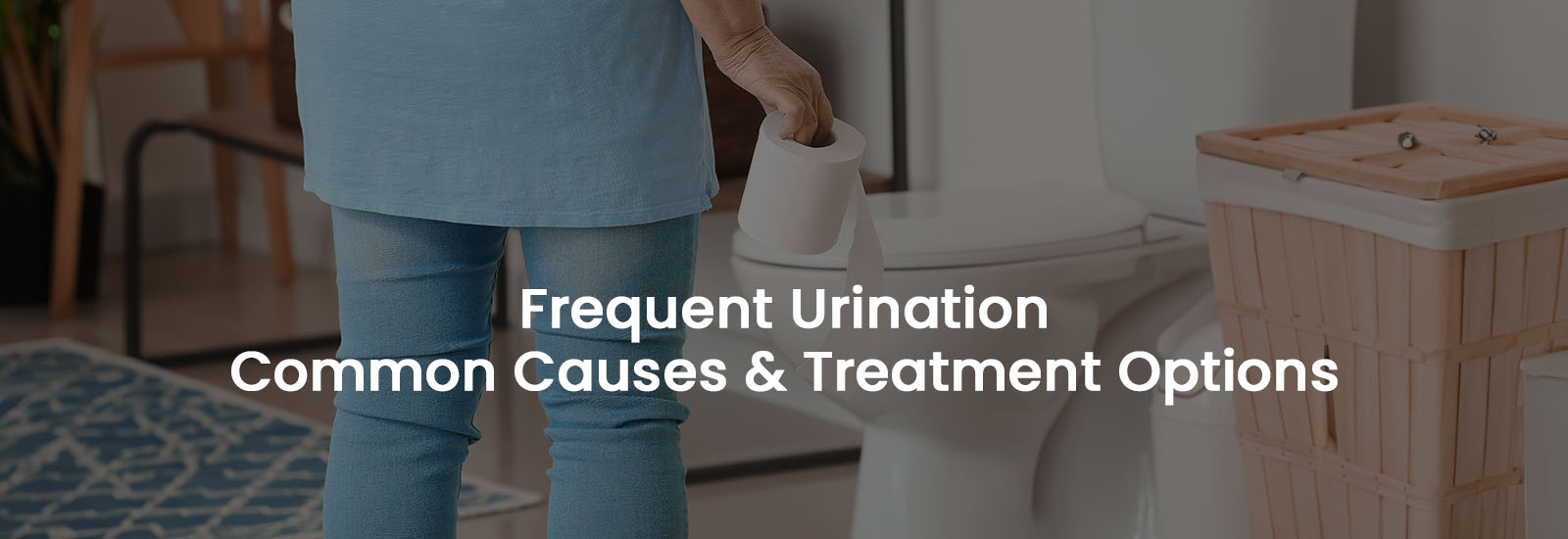
Urinary incontinence is a medical condition characterized by the involuntary leakage of urine. It can be a temporary or chronic problem and can eventually lead to complete loss of bladder control if not treated on time.
The rate of urinary incontinence in seniors can vary depending on a number of factors, including age, gender, overall health status, and underlying medical conditions. The National Institutes of Health (NIH)* reports that daily urinary incontinence is reported by 9% to 39% in women and 11% to 34% in older men over 60.
However, there are different types of urinary incontinence. Each type has a unique set of physiological challenges and symptoms. Read on to know more.
Types of Urinary Incontinence

1. Urge Incontinence
Also known as overactive bladder, it is a type of urinary incontinence in which seniors have a sudden, strong, and uncontrollable urge to urinate. People with urge incontinence may experience leakage of urine before reaching the bathroom, or they may feel the need to urinate frequently throughout the day and night.
2. Stress Incontinence
This type of incontinence occurs when there is an increase in intra-abdominal pressure on the bladder, causing the involuntary loss of urine. It can happen during physical activities such as coughing, sneezing, laughing, exercising, or lifting heavy objects.
3. Overflow Incontinence
It happens when the bladder doesn’t completely empty during urination and fills up and overflows. This may occur if the muscles that control urination are weak or injured, or if the urinary system is blocked and fluid cannot flow freely.
4. Functional Incontinence
If a senior is suffering from functional incontinence, it means that he or she is unable to reach the bathroom in time due to physical or mental limitations. It is more common in elderly individuals who may have mobility problems or cognitive impairment.
What Causes Urinary Incontinence in Seniors
Weak pelvic muscles
The muscles that support and regulate urination become weaker as we age, which can cause incontinence.
Changes in hormones
The estrogen hormones help to maintain the strength and thickness of the tissue in the urethra and bladder and aid in maintaining urinary control. For women, menopause can lead to decrease in estrogen levels and therefore, induce incontinence.
Prostate enlargement
When the prostate gland becomes enlarged in men, it can put pressure on the bladder and urethra, which can lead to urinary incontinence.
Neurological disorders
All types of neurological illnesses that can disrupt the communication between the brain and the bladder, cause incontinence.
Urinary tract infection
UTIs can irritate and inflame the bladder, which can result in incontinence.
Effective Treatments to Cure Urinary Incontinence

1. Behavioral therapies
These therapies focus on modifying behavior and lifestyle habits to improve bladder control and aid in treating urinary tract infections. These therapies are often recommended as a first-line treatment for urinary incontinence, particularly for milder cases. Several types of behavioral therapies may be recommended depending on the individual’s specific needs, including:
- Bladder training: It involves gradually increasing the time between bathroom visits to train the bladder to hold more urine and reduce urgency.
- Pelvic floor exercises: Also known as Kegel exercises, these involve contracting and relaxing the muscles of the pelvic floor to improve muscle strength and support the bladder and urethra.
- Scheduled toilet trips: Forming a routine for bathroom breaks can help reduce the frequency of frequent urination.
- Diet and fluid management: Avoiding bladder irritants such as caffeine, alcohol, and acidic foods, and maintaining a healthy fluid intake can help improve bladder control.
2. Medication
Doctors may recommend medicines for urinary incontinence in some cases, particularly for individuals with urge incontinence or overactive bladder. The aim of medications in this case is to relax the bladder muscles, reduce bladder contractions, and strengthen the bladder capacity.
Some commonly prescribed medications for urinary incontinence include:
- Anticholinergics: These medications aid in lowering bladder contractions and the need to urinate.
- Mirabegron: This medicine increases bladder capacity by relaxing the bladder muscle.
- Alpha-blockers: These drugs help to increase urine flow and lessen the signs of overflow incontinence by relaxing the muscles in the prostate and bladder neck.
- Topical estrogen: For women, topical estrogen cream or ring can help improve the strength and function of the pelvic muscles that support the bladder.
These medications must be prescribed by a doctor.
3. Surgery
It is particularly recommended for individuals with stress incontinence or mixed incontinence. Surgery provides support to the urethra and bladder to help improve bladder control. Talk to a healthcare provider about the risks and benefits of surgery for urinary incontinence to take an informed decision.
The Bottom Line
Urinary incontinence can significantly impact the quality of life for seniors, but there are many effective treatments available which can help in dealing with the condition. If your elderly loved one is experiencing urinary incontinence or symptoms associated with it, then it’s important to seek medical attention. Visit the nearest EliteCare Health Center, one of the top medical clinics in Florida and a consult a board-certified primary care physician for treatment.
*Tran, L. N. (2022, August 8). Urinary Incontinence. StatPearls – NCBI Bookshelf. https://www.ncbi.nlm.nih.gov/books/NBK559095/






